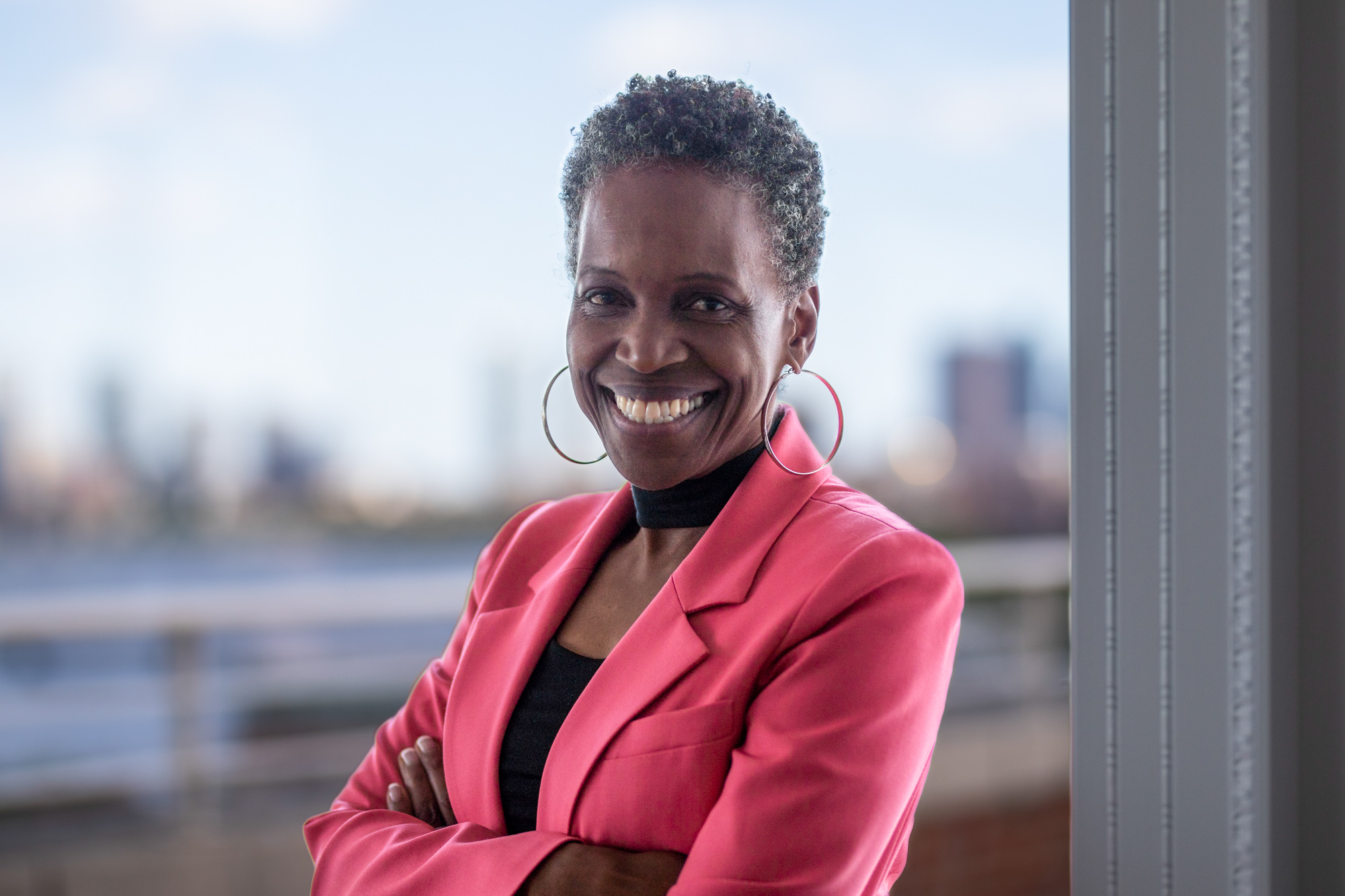Melissa Gilliam is prioritizing communication, collaboration and community as she begins her time as Boston University’s 11th president. She officially began her tenure on July 1.
Gilliam enters her position during a tumultuous time at the University, as the BU Graduate Workers Union remains on strike and the ResLife Union continues to negotiate for a fair contract. She said she is approaching these on-campus labor disputes by “listening [to] and hearing” their perspectives.

Student Body President Akwasi Antwi said he was “thrilled” when Gilliam was appointed president of BU. Antwi said Gilliam, the University’s first Black and first female president, represents a lot of students.
“Having meetings with her, in which students can actively attend and ask questions … is pretty much at the top of my priority list,” Antwi said.
Gilliam said she plans to meet regularly with BU student leaders throughout the semester.
In addition to student groups, Gilliam has been meeting with leaders at other Boston-area universities. Despite the assumption that BU is competing with other institutions, Gilliam finds there is a “generosity of spirit” among local universities.
“We have a lot of opportunities to partner on projects [and] borrow and share ideas but also to think about how you can create regional hubs,” Gilliam said.
Gilliam is also assuming the presidency in the wake of the U.S. Supreme Court’s decision to overturn affirmative action, a ruling that prohibits colleges from considering race in admissions. The Class of 2028 is the first class to be admitted since the ruling, and Black student admissions at BU have dropped from 9% to 3%.
The University is focused on building “infrastructure, processes and programs” to combat the Supreme Court decision and promote diversity on campus, Gilliam said. This includes examining students’ academic success and staying connected with alumni.
“I believe in taking complex and challenging situations and trying to say, ‘How do we use these moments to get even better?’” Gilliam said.
BU is in the fourth year of its 10-year “Strategic Plan,” which prioritizes research, diversity, equity, community and global engagement. Gilliam said she hopes to move the institution forward by identifying the gaps among these values and supporting existing initiatives through strategy, operations and culture.
The gaps include improving consistency in operations across the Charles River Campus and the BU Medical Campus, modernizing operations and implementing a clearer strategy around faculty and staff development, Gilliam said.
“[We are] really continuing to think about our external engagement, and then also making sure that all people, our faculty, staff and students, feel like they have the support and the opportunities and experiences they need,” Gilliam said.
Natalie McKnight, dean of the College of General Studies, wrote in an email to The Daily Free Press that Gilliam has been very collaborative so far.
“I am so impressed by President Gilliam’s richly interdisciplinary background and how she is harnessing that in bridging the arts and sciences in plans for BU’s future,” McKnight wrote. “I am also inspired by her enthusiasm for BU’s legacy of inclusivity and her commitment to extending that mission as we move forward.”
College of Fine Arts Dean Harvey Young described Gilliam as an ambitious and intelligent leader.
“President Gilliam consistently mentions the power of the arts and its ability to bring people together,” Young wrote. “Her vision for an arts-rich campus is inspiring.”
Prior to becoming the president of BU, Gilliam worked at The Ohio State University as executive vice president and at the University of Chicago as vice provost for academic leadership, advancement and diversity.
“I draw on that experience to think about what it means to be a university that sits right in the middle of the city,” Gilliam said, in reference to UChicago. “It can have a really important relationship with the city where it’s porous and there are no clear boundaries.”
Over the past year, many higher education presidents — like Harvard University’s Claudine Gay and the University of Pennsylvania’s Liz Magill — have been under pressure from outside figures regarding university topics. These include free speech, affirmative action and balancing student interests. In the midst of these discussions, Gilliam said there is an opportunity for universities to band together.
“There’s this silver lining, which is that it can be a time for people to really talk and be in conversation and start to identify the common challenges,” Gilliam said.
Gilliam said that she aims to center the BU community as she navigates potential external pressures.
“There are so many stakeholders,” Gilliam said, referring to students, faculty and staff. “[I] try to anchor and mainly be guided by our community.”
Gilliam will be inaugurated on Sept. 27. The atmosphere on campus leading up to her inauguration is one of “anticipation” and “excitement,” said BU Spokesperson Colin Riley.
“She’ll put her indelible mark on BU from her background and the initiatives and the things that she puts in place, the leadership she brings,” Riley said.
As she assumes the presidency, Gilliam said she is looking forward to building upon “foundational principles” pioneered by past BU presidents.
“They’re people who were just throughout [history] making courageous decisions,” Gilliam said. “That is what I think is really exciting about Boston University.”





















































































































